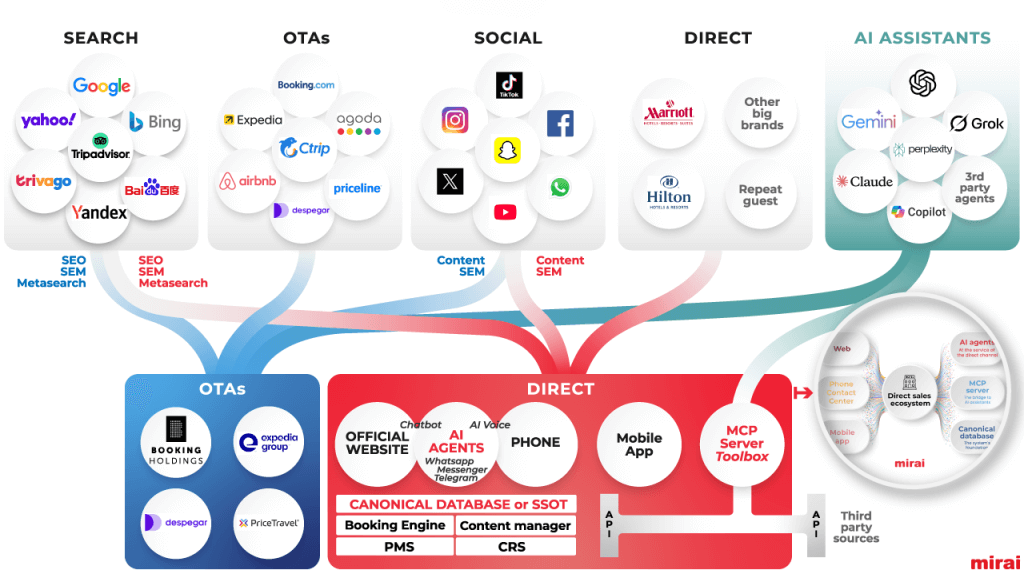
In May 2024, the European Union designated Booking.com as a gatekeeper under the Digital Markets Act (DMA), a move intended to usher in fairer practices and transparency within the digital marketplace.
NB: This is an article from Guestcentric
Subscribe to our weekly newsletter and stay up to date
The goal was to address concerns about data sharing, pricing transparency, and the platform’s dominant position over hotel partners. However, nearly half a year down the line, progress has been slower than anticipated, leaving hotels still grappling with many of the same challenges.
Given the current state of play, the big question is, how can hotels compete on a leveled playing field and continue to strengthen their direct business performance? Keep reading to find out.
The Love / Hate Relationship between Booking and Independent Hotels, and Booking’s Slowness to Change in 2024
Since its inception, Booking.com allowed independent hotels, without brand recognition, to sell rooms on a global digital marketplace. The platform’s broad inventory and growing influence led many consumers to believe that “all hotels that matter” were listed there, and thus, Booking.com also became a significant source of revenue for hotels. In the years that followed however, this relationship evolved into one of over-dependency for many independent hotels, with 60% to 90% of their bookings coming from Booking and other OTAs.
This heavy reliance left hotels with reduced control over their brand, pricing, and guest relationships. These challenges increased when Booking introduced a number of one-sided policies to their business model – including price parity and not sharing consumer data with their hotel partners in order to continue engaging guests directly.
However, a turning point came for hotels during the pandemic when travel ground to a halt. During this period, independent hotels took it upon themselves to resolve guest issues and provide personalized services. This hands-on support created stronger bonds between guests and hotels, leading to a surge in direct bookings even after OTA operations resumed.
However, Booking.com also faced criticism for issuing mass refunds during the pandemic without the consent of independent hotels, even when guests had accepted credit. This and other historical practices mentioned above, highlighted the imbalance in power dynamics, as hotels had limited control over refund policies and were often left to manage the fallout from cancellations. This further drew attention to Booking.com’s anti-competitive practices, market dominance, and outsized influence over hotels’ pricing autonomy and direct guest relationships, further necessitating regulatory action.




